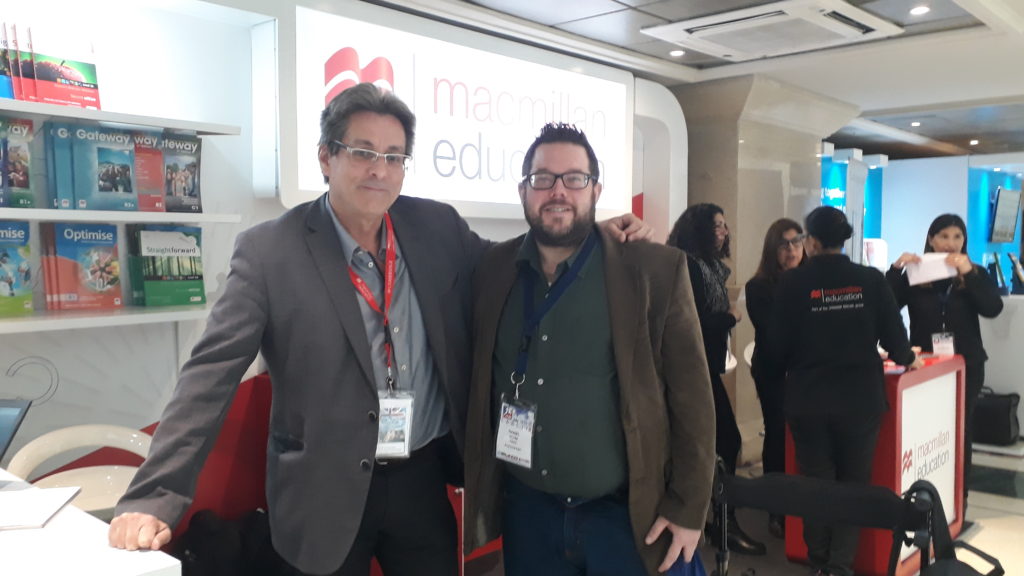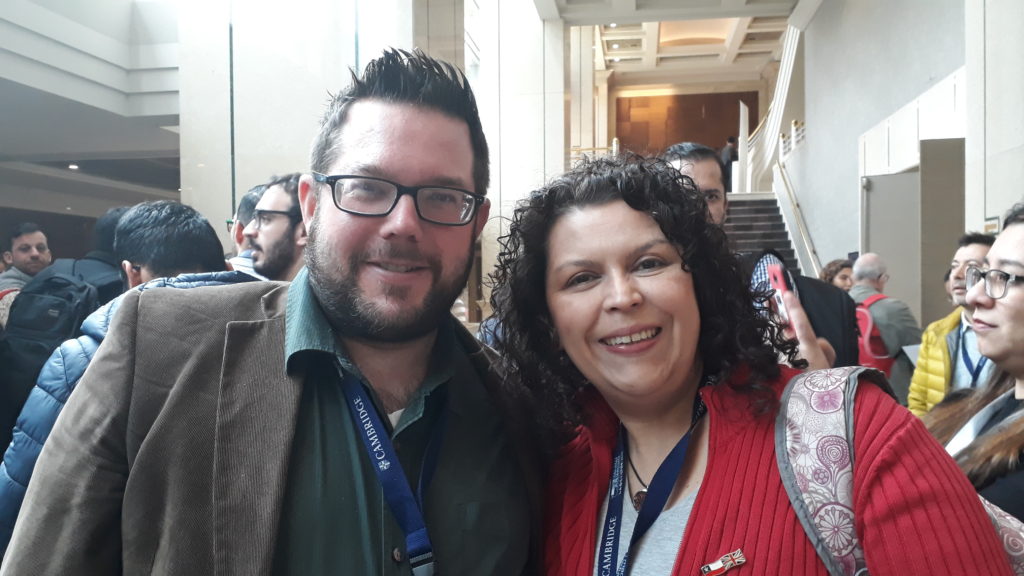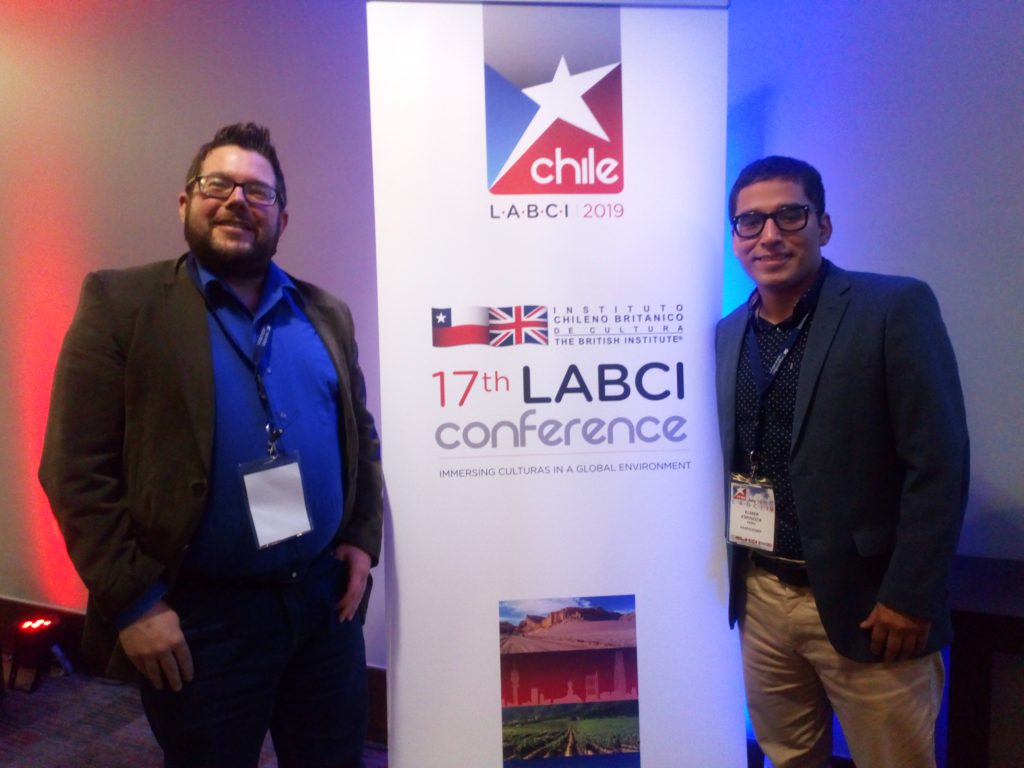Last week I spent three days at a teaching conference in Santiago, and it was a great time. This particular conference was organized by the Latin American British Cultural Institute, and it included people from all over South America, the States, Europe, and even Australia. It happens every other year a different Latin American country, and this year I was lucky that it was in Santiago.

They had some great speakers that are the rockstars of the ELT world. Jeremy Harmer talked about how technology has changed our lives as well as our classrooms and the importance of engaging our students in deep proecessing, and Evelina Galaczi talked about how we can embrace technology in our classrooms and get it right. Her talk struck a chord with me since I’m hesitant to try out technology and change, but she acknowledged the reality that not all technology is suited for classroom learning and offered a way of evaluating digital tools. Phillip Kerr spoke about the role of a student’s native language in the language classroom, and he put forth the idea that it is the teacher’s obligation to know his student’s native language in order to teach them effectively. He also believes that there is a place for a student’s native language in the classroom in a variety of situations. Later on he gave another talk about personalized instruction, how huge of a topic it is, what it actually means, and current trends with technology in education related to personalizing content for students. Another amazing speaker was Luiz Otavio Barros. He talked about demand high teaching, which is related to pushing our students to produce a little more or at a level a big higher than their current level in order to help them grow as language learners.



Besides the plenary speakers, there were some other great sessions. There was a session about using emojis in classes in a variety of ways, and I think I could use the ideas presented as a short break from learning that is dense or requires more thought. Two teachers from Brazil shared their experience learning new languages (Spanish and German) and how it affected their teaching. This was interesting for me since I studied Spanish and German and feel that studying other languages makes me a better teacher than I would have been as a monolingual teacher. Their research also suggested that we should move away from classifying teachers as native and non-native speakers but instead consider ourselves monolingual, bilingual, or multilingual. There were a few other sessions that were about the use of visual organizers and the importance of listening skills in the classroom that were really good reminders about techniques I can use in classes.
The conference ended with a panel involving the plenary speakers and some other prominent speakers answering questions from the audience, and it was really great hearing their advice and insights about trends in ELT and how to develop professionally.
In addition to the learning, there is always the social element of going to conferences. I ran into some colleagues that I hadn’t seen in a while, and it was nice catching up with them. I also made some new friends with other teachers that are in Chile and another that came all the way from Lima.


All in all, it was a great experience. The entire event was very well organized, and everyone attending was friendly and welcoming. I had the opportunity to speak with some amazing people in the ELT industry, reflect on my teaching, and take a break from teaching for three days. At the end of the conference I was tired, but it was worth it to keep growing professionally. It was a nice reminder to collaborate with other teachers and to not stay isolated with my teaching. The next LABCI conference is in Brazil in 2021, and I’m hoping to attend. Hopefully there will be some other conferences before then.
Did anyone reading this attend LABCI? If so, what were your thoughts? Are there any other conferences coming up in South America that I should consider attending?




One Response
DEAR DANIEL, THIS IS ELMER ( WITH YOU IN THE LAST PIC) AND HOW LOVELY TO READ YOUR POST AND RECALL THOSE GREAT THREE DAYS. YOU ARE TOTALLY RIGHT WHEN REFLECTING ON THE CONFERENCE AND THE FANTASTIC ATMOSPHERE THAT WE ALL EXPERIENCED THERE.
THANK YOU VERY MUCH FOR SHARING YOUR THOUGHTS AND THE PICS AND THANK YOU INDEED FOR BEING SUCH A WONDERFUL WORKSHOP COMPANION.
HOPE TO SEE YOU SOON, MAN.